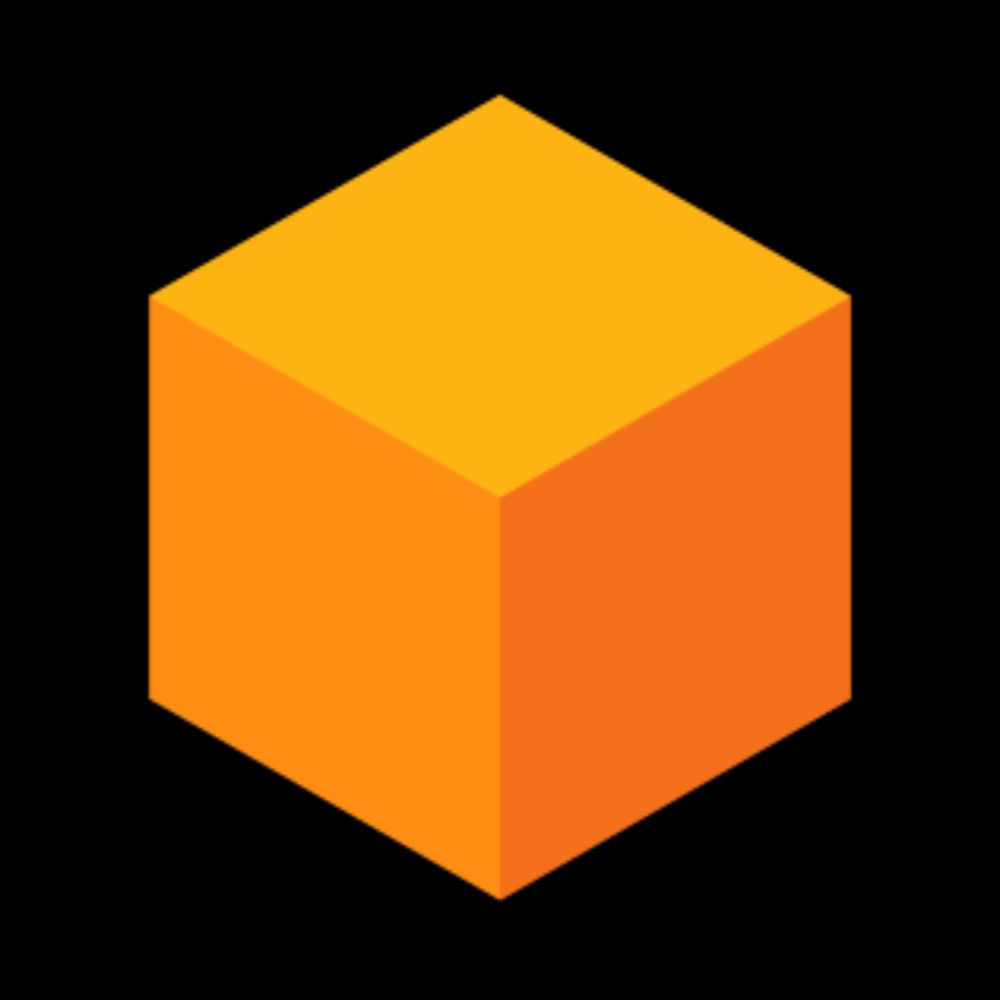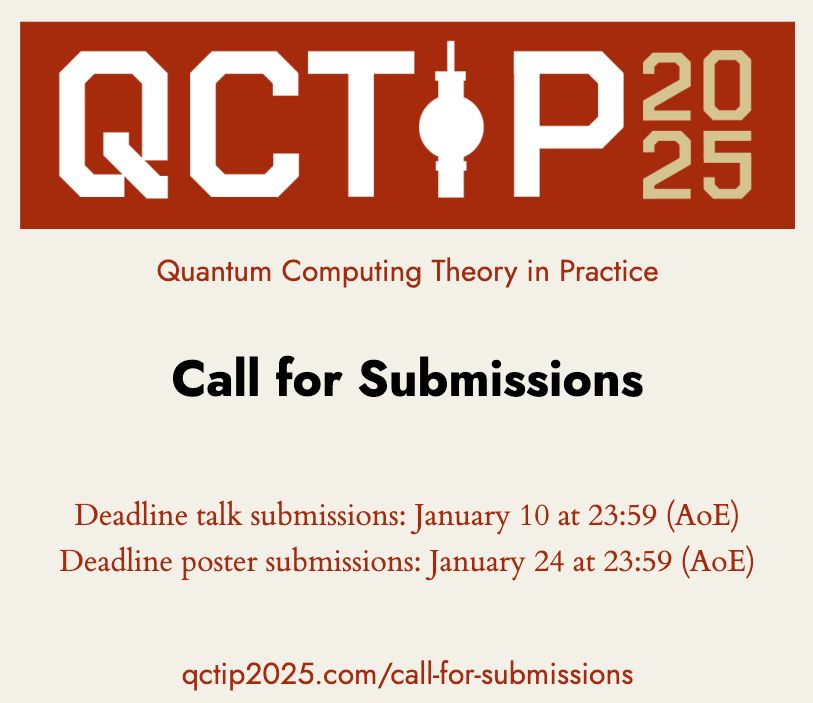🚨 Just a couple weeks to go! 🚨
The QCTiP Conference kicks off April 23rd — where the brightest minds in quantum computing theory & practice collide ⚛️
#QCTiP2025 #QuantumComputing #CountdownBegins
🧵(1/4)
PJ
@peter-jan.bsky.social
QEC in Berlin
@peter-jan.bsky.social
QEC in Berlin
🚨 Just a couple weeks to go! 🚨
The QCTiP Conference kicks off April 23rd — where the brightest minds in quantum computing theory & practice collide ⚛️
#QCTiP2025 #QuantumComputing #CountdownBegins
🧵(1/4)

🚨The registration deadline for #QCTiP2025 in Berlin is this Friday! Don't miss out—secure your spot now: qctip2025.com/registration... 🎟️
11.03.2025 15:36 — 👍 3 🔁 2 💬 0 📌 0
Registrations are now open for #QCTiP2025: qctip2025.com/registration....
Don’t wait too long—spots for participants without a talk are first-come, first-served!
I believe this is mainly because on StackExchange there's a competition to write clearly and concisely. If you don’t answer a question clearly and concisely, someone else will. In contrast, academic papers have less incentive for clarity and brevity. 2/2
15.02.2025 15:07 — 👍 3 🔁 0 💬 0 📌 0I've recently gotten back into the habit of checking QCSE for QEC posts. On average, I learn more from reading QCSE than from reading the arXiv. 1/2
15.02.2025 15:02 — 👍 3 🔁 0 💬 1 📌 0Christopher pointed out that I didn't define fault-tolerant syndrome extraction. I've updated the question now.
19.12.2024 10:48 — 👍 0 🔁 0 💬 0 📌 0
I'm asking this on QCSE: quantumcomputing.stackexchange.com/questions/40...
17.12.2024 17:52 — 👍 1 🔁 0 💬 1 📌 0Is there a known fault-tolerant method for measuring an arbitrary multi-qubit Pauli operator on a 2D square grid of qubits?
I deliberately left out a space or time constraint. For simplicity, assume the Pauli operator acts on qubits located along one of the boundaries of the 2D square grid.

Submissions for QCTiP 2025 are now open.
05.12.2024 10:45 — 👍 25 🔁 16 💬 1 📌 2Also useful for showing something doesn't work. Just need to run one counterexample instead of hunting for a mistake in a proof.
02.12.2024 14:41 — 👍 1 🔁 0 💬 0 📌 0No delays, long live the arXiv 🙂
02.12.2024 14:30 — 👍 2 🔁 0 💬 0 📌 0One reason I believe this could be useful is because I like defining codes by properties of circuits implementing them.
The advantage of a definition in terms of circuit properties is that it can answer: is this circuit implementing a color code/surface code/something else?
Been here 5 minutes and nobody posted a screenshot of their google scholar, so far, so good.
25.11.2024 11:25 — 👍 13 🔁 2 💬 0 📌 0I write down the answer to flashcards
27.11.2024 12:56 — 👍 3 🔁 0 💬 0 📌 0
I answer flashcards in my head
Out of curiosity, a poll on memory systems. Like the post that applies to you.
27.11.2024 12:55 — 👍 2 🔁 0 💬 1 📌 0